Installing a gas fireplace can make your home feel authentic and welcoming. It gives off a warm, cozy vibe. You may want to have a gas fireplace installed and wonder how long it will last. We researched this topic extensively and have information to share.
On average, a gas fireplace can last between 10 and 15 years. But that number can significantly improve based on a variety of factors. With proper maintenance and understanding, your gas fireplace could substantially exceed the average lifespan, with reports of fireplaces lasting for more than two decades.
This article will discuss what factors help improve a gas fireplace's lifespan. Additionally, we will discuss the best times to repair or replace your gas fireplace. So continue reading to find out more.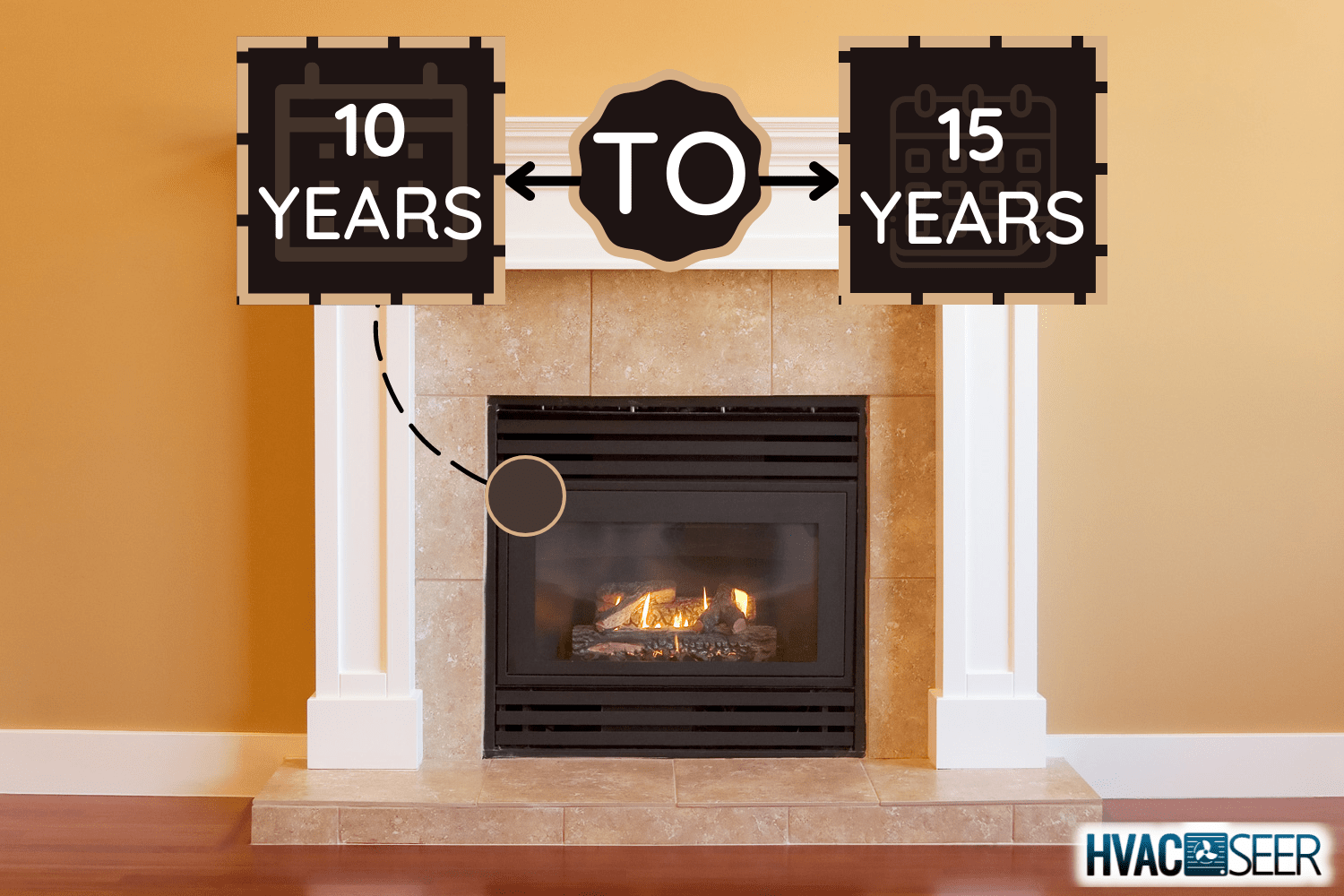
What Is The Life Expectancy Of A Gas Fireplace?
As we established earlier, the average lifespan of a gas fireplace is a little over a decade, although there are cases where that number fluctuates, depending on how one takes care of the fireplace.
With proper care and maintenance, gas fireplaces can last far longer than the average suggests. Conversely, gas fireplaces that don't have the same amount of care and maintenance put into them will break down a lot faster.
A gas fireplace can last up to 25 years in some cases, and maybe even more. But if you don't put in the work for it to continue working at peak efficiency, then it will not even last you for a decade.
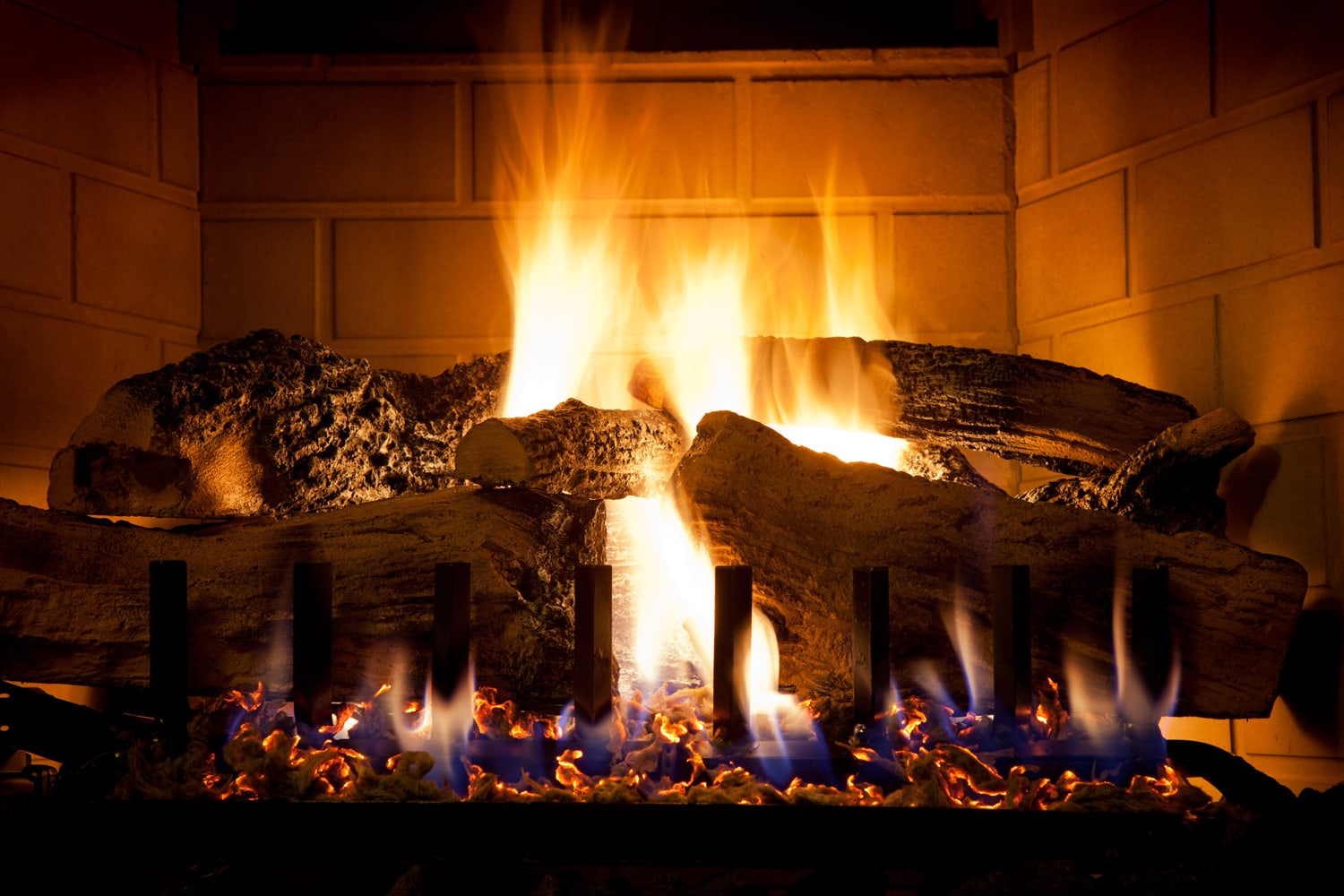
What Factors Impact A Gas Fireplace's Lifespan?
Earlier, we discussed how there needs to be proper care and maintenance regarding a gas fireplace. After all, that helps extend its lifespan. But there are other factors that you need to consider.
It all starts when installing a gas fireplace in your home. Choosing what kind of gas fireplace you want, the quality of its parts, and the overall care put into installing everything all play a role in extending a gas fireplace's lifespan.
Additionally, you must be aware of a gas fireplace's usage duration. The longer you use it, the more wear and tear its parts go through. Also, how you use your fireplace is another thing that you must consider.
When it comes to replacing individual parts, some are easy to find while others are not. As gas fireplaces have become more advanced in recent years, so are the required parts.
All of these contribute to a gas fireplace's lifespan, so you must know all the tiny nuances when caring for a gas fireplace. Even the simplest inspection, care, and selection of replacement parts can significantly affect its lifespan.
Components To Consider When Prolonging A Gas Fireplace's Lifespan
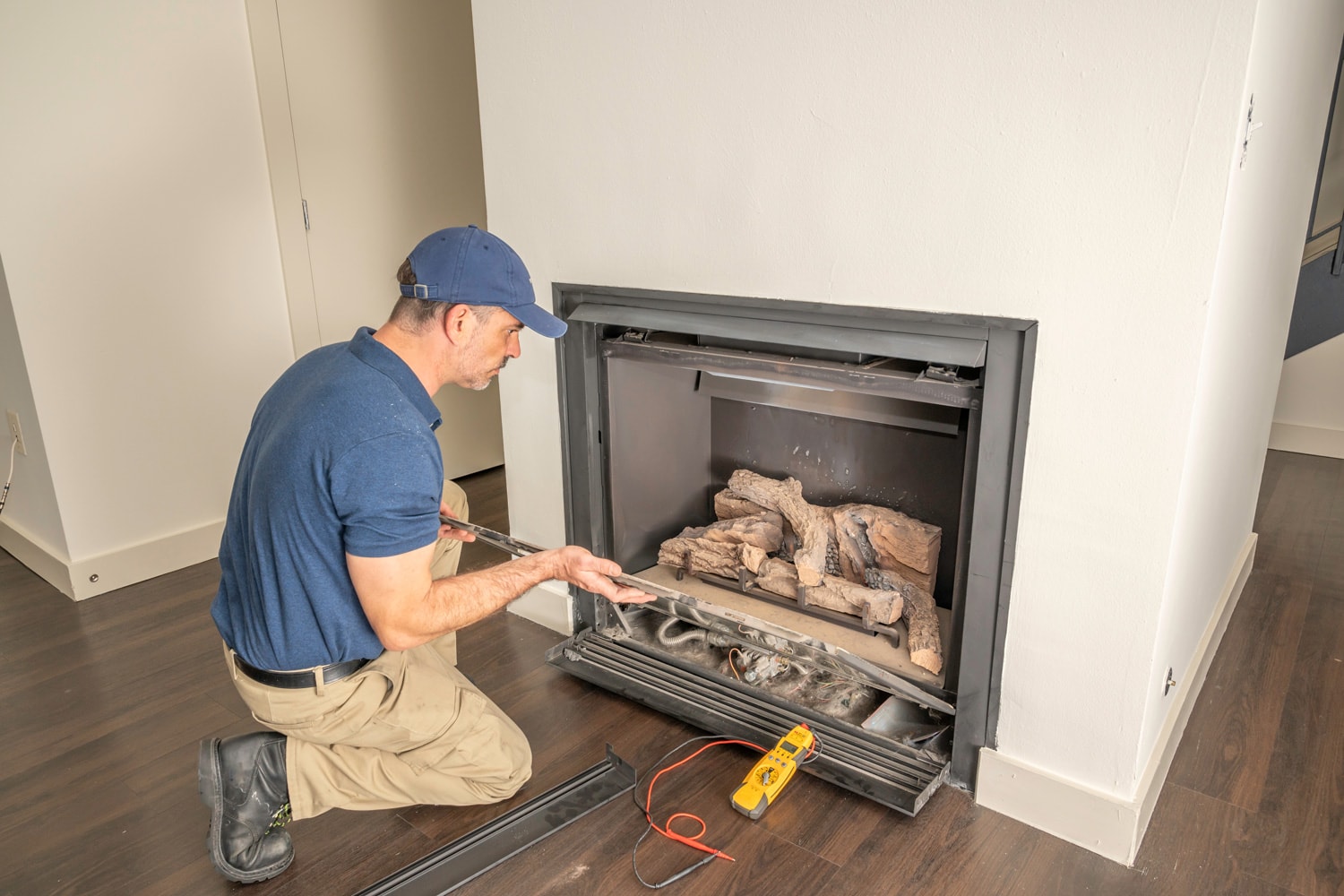
Repairing and replacing specific components will go a long way when prolonging a gas fireplace's lifespan. In this section, we will talk about what some of those components are.
Gas Firebox
Every gas fireplace needs a firebox, as this component is responsible for containing the heat. Fireboxes can last a long time, because they are made of galvanized steel. They can easily outlive the entire gas fireplace, with their lifespan north of fifty years.
As long as you buy a high-quality firebox, there should be little to no issue with it. The only thing you need to worry about is its interior paint. Make sure not to use regular paint, or it will burn away due to the extreme temperature inside.
Check out this gas firebox on Amazon.
Gas Burners
When there's something wrong with the burners, there is no need to fret. You can easily replace them just as long as the parts are available on the market. They usually last just as long as your gas fireplace, or even longer.
Check out this gas burner on Amazon.
Ceramic Logs And Decorative Liners
These parts are usually for decorative purposes, although some need careful handling. These products are less durable than other components because they are cement or glass. Their estimated lifespan is usually between five to 10 years.
When To Repair Or Replace A Gas Fireplace
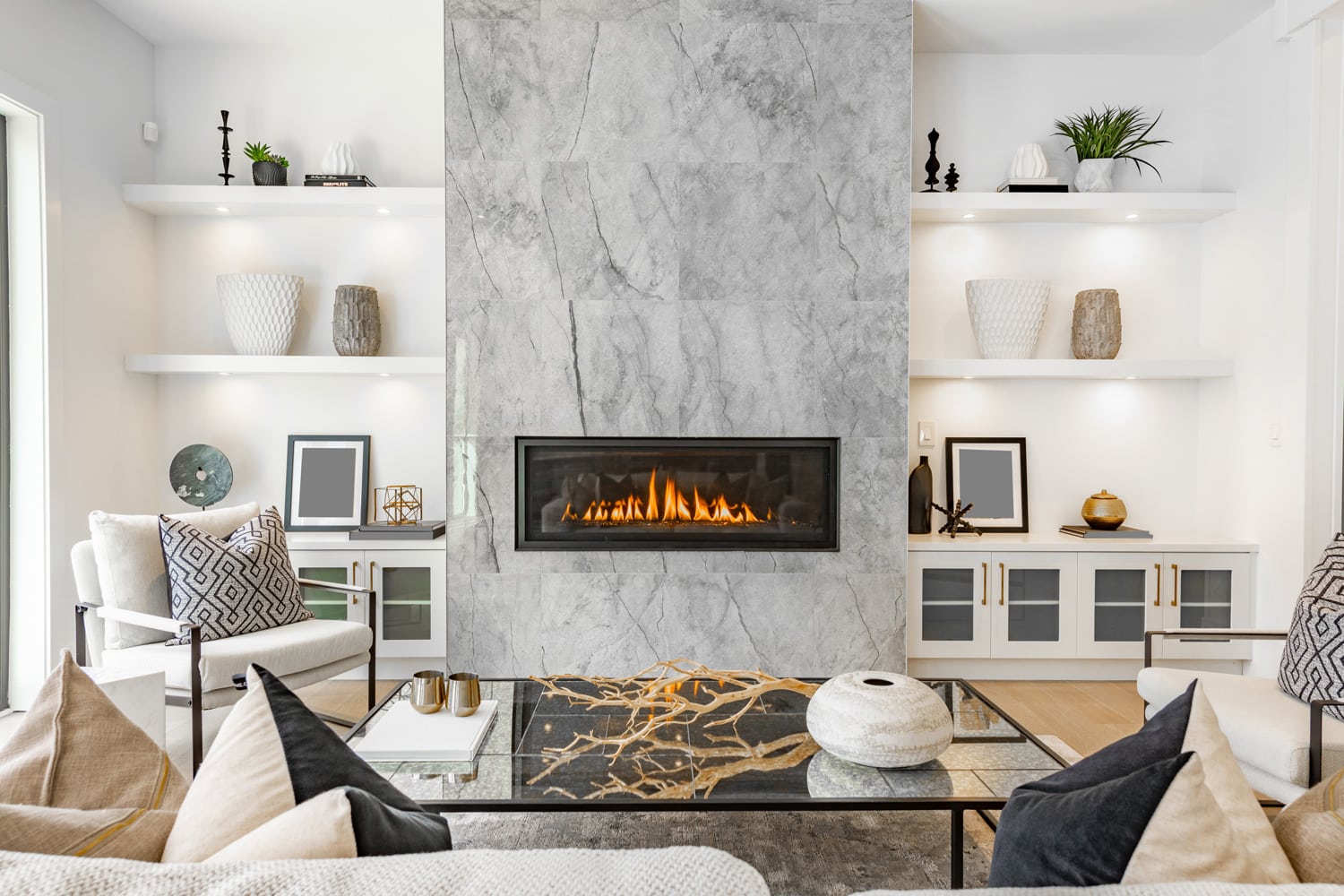
Sometimes it isn't easy to gauge when to repair and replace your gas fireplace. So in this section, we will discuss some simple tips to remember for you to know when is the best time.
Lifestyle Changes
Maybe you don't like the design of your old gas fireplace or you want to convert your gas fireplace to a wood-burning one out of nostalgia. Whatever the case, as long as you have the money and time, now is an excellent time to replace your gas fireplace.
You don't always have to stick with what you had before when you change your lifestyle. If you think this is the best time to upgrade what you have, do it.
If you're considering converting your gas fireplace to a wood-burning fireplace, check the link below. It details how much the conversion costs and more:
How Much Does Converting A Gas Fireplace To Wood Cost?
Purchasing A New Home
When purchasing a new home, you may find that the fireplace is not working right or that it is out of date. During this time, trying to repair or even replace the gas fireplace is an intelligent investment.
It also helps make your new home feel safe and secure. After all, the last thing you want is a broken gas fireplace in your new home during the winter.
Remodeling Current Home
Sometimes you want to spruce up your current home, whether through a new paint job or adding new decorations. Sometimes you want to remodel the whole interior.
During that remodeling phase, you might think that the gas fireplace does not fit the vision you have in mind. If that's the case, then that's a sign to consider.
You can either upgrade your gas fireplace to something more modern or high-tech or replace some parts that help make it a better fit inside your home.
Whatever you decide, know that the gas fireplace is not a hindrance to home remodeling and is a chance for you to express yourself even further.
Preparing To Sell A Home
Earlier, we mentioned that repairing or replacing a gas fireplace is a smart investment. That applies to when you're living in your current home and to when it's time to move out.
For buyers, a house with a working fireplace is much more appealing than one that doesn't have it. It can help drive the price tag higher. While that's not all that a future homeowner looks for when buying a house, it does help when trying to sell one.
Malfunctioning Fireplace
And last but certainly not least, repair your gas fireplace when it starts to malfunction. Do routine inspections to check for wear and tear in your gas fireplace's components.
This will help prevent you from staring at a massive problem later on down the line. Also, don't hesitate to replace your gas fireplace when needed.
Once it has served you for a couple of decades, it's time for you to start looking into a replacement to prevent issues from happening.
Benefits Of Repairing And Replacing Your Gas Fireplace
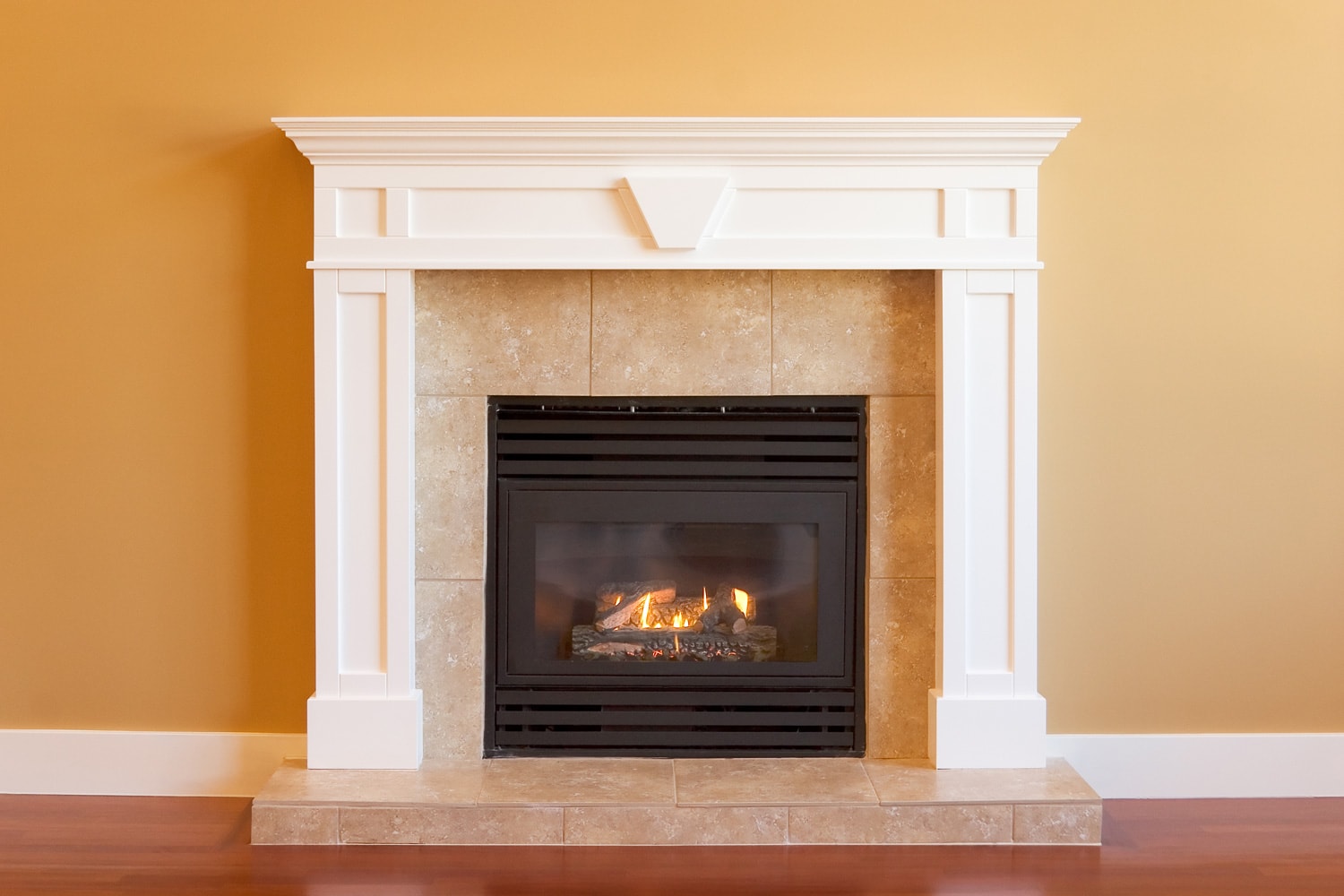
We mentioned some of these benefits throughout the article, but we will discuss them further in this section. When talking about these benefits, the first one that comes to mind is a gas fireplace's efficiency.
You want to repair your gas fireplace or replace certain components, or maybe all of it, because you want it to continue working at the same optimal level it always has.
That means providing you and your family the warmth needed through cold winters and giving that sense of comfort in your home.
Not only that, but repairing your gas fireplace will help save you money in the long run. But this only applies to small repairs or when replacing parts that are abundant on the market. Be smart when repairing your furnace and when replacing the entire thing.
The money invested will go into heating your home efficiently, making your and your family's lives more comfortable. It also goes back into your pocket once it's time to sell your home and move into a new, better one.
To Wrap Up
Gas fireplaces can last for an incredibly long time. Even though their average lifespan is between 10 and 15 years, they can last far longer under the right circumstances.
With proper maintenance and the replacement of individual parts, gas fireplaces can sometimes last 25 years or more.
Did you enjoy reading through this article? If so, consider checking the links below. They tackle different topics that are related to gas fireplaces:


